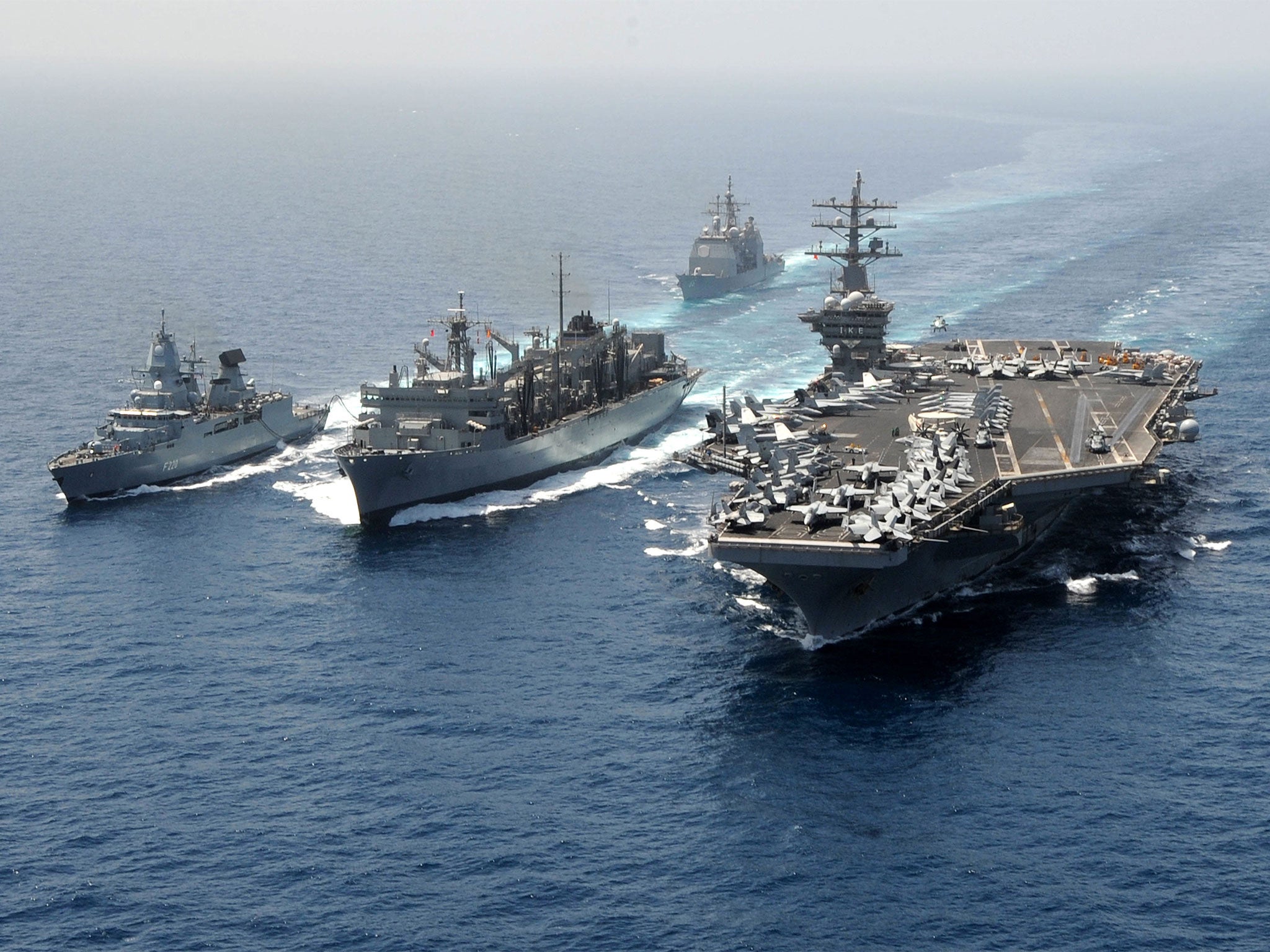Nato orders fleet to deploy in Aegean Sea 'to help end Europe's refugee crisis'
Warships from the Western alliance will be used to stop people-smuggling boats for the first time

Your support helps us to tell the story
From reproductive rights to climate change to Big Tech, The Independent is on the ground when the story is developing. Whether it's investigating the financials of Elon Musk's pro-Trump PAC or producing our latest documentary, 'The A Word', which shines a light on the American women fighting for reproductive rights, we know how important it is to parse out the facts from the messaging.
At such a critical moment in US history, we need reporters on the ground. Your donation allows us to keep sending journalists to speak to both sides of the story.
The Independent is trusted by Americans across the entire political spectrum. And unlike many other quality news outlets, we choose not to lock Americans out of our reporting and analysis with paywalls. We believe quality journalism should be available to everyone, paid for by those who can afford it.
Your support makes all the difference.The Nato fleet is being deployed to the Aegean Sea immediately in a bid to end the flow of refugees crossing the sea into Europe from Turkey.
Announcing the deployment, which will see refugee boats met by warships rather than coastguards, Nato secretary-general Jens Stoltenberg said action would be taken "without delay".
It comes after Greece declared Turkey a "safe third country", giving it the legal framework to turn back asylum-seekers and to actively deport those who have arrived back across the Mediterranean.
In a press conference, Mr Stoltenberg insisted the deployment of Nato's Standing Maritime Group 2 was "not about stopping or pushing back refugee boats".
The fleet, including warships from a range of Western countries and currently under German command, "will be tasked to conduct reconnaissance, monitoring and surveillance of the illegal crossings in the Aegean sea in cooperation with relevant authorities", he said.
The US Secretary of Defence, Ash Carter, said: "There is now a criminal syndicate that is exploiting these poor people and this is an organised smuggling operation.
"Targeting that is the way that the greatest effect can be had ... That is the principal intent of this."
At the same time, it was announced that Nato will step up its counter-terror efforts on the border between Turkey and Syria.
And Mr Stoltenberg said Nato would "step up" its efforts in the international coalition against Isis, following a request from the US.
"We have just agreed that Nato will provide support to assist with the refugee and migrant crisis," Mr Stoltenberg said.
"The goal is to participate in the international efforts to stem the illegal trafficking and illegal migration in the Aegean."
"It is important to respond swiftly," he said. "Because this crisis affects all of us."
Germany has said it will take part in the mission in collaboration with Greece and Turkey, while the US said it "fully supports" the plan.
It is initially expected to involve five warships stationed for Standing Maritime Group 2 currently near Cyprus, but Mr Stoltenberg indicated more ships could be moved to the Aegean if required.
A government source told Reuters Germany is expected to contribute at least one other ship.
The extent to which the Nato vessels will interact with refugee boats remains unclear.
Nato diplomats said that rather than direct intervention, intelligence gathered about people-smugglers is likely to be handed over to Turkish coastguards to allow them to combat the traffickers more effectively.
Yet there have been numerous incidents where interactions between larger coastguard ships and refugee boats have resulted in the latter being capsized, and it is not known how people smuggler captains will react to sighting a large Nato warship in their path.
Nato confirmed that any refugees it "saves" from the vessels will be taken back to Turkey. According to Reuters, the Greek and Turkish coastguards will continue to operate exclusively within their own territorial waters.
Join our commenting forum
Join thought-provoking conversations, follow other Independent readers and see their replies
Comments